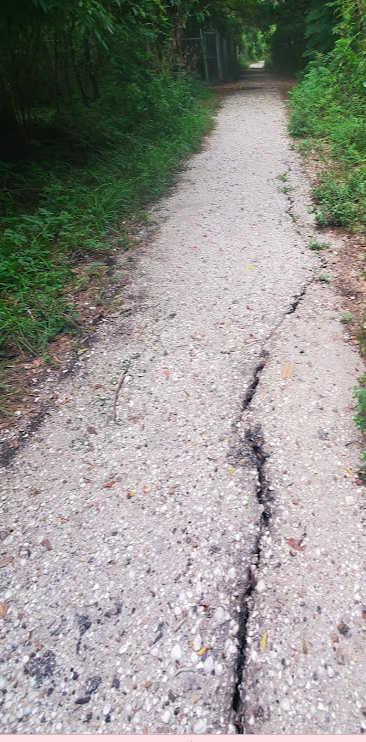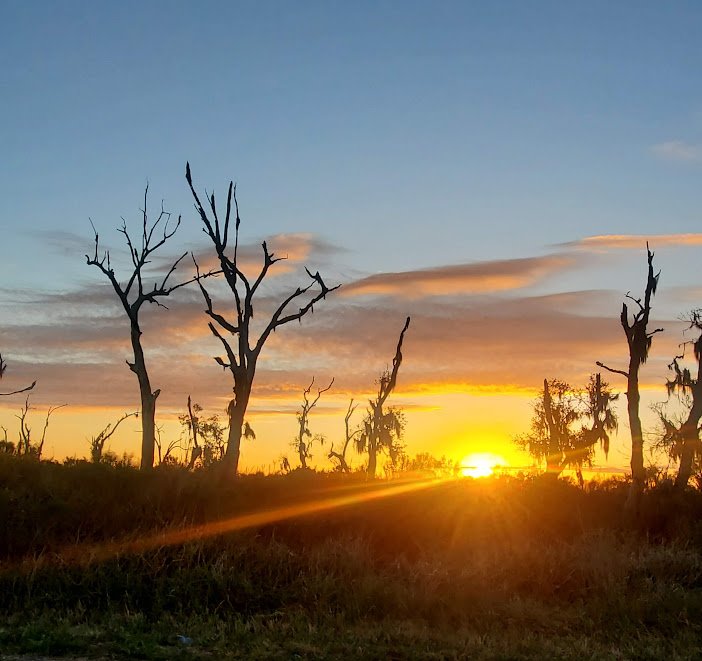
Apocalypses: Grammar for the End of the World
We rarely see the plural of apocalypse. We’re so comfortable with the singular form that hearing and seeing it written as apocalypses makes us do a double take because it looks and sounds strange in its plural form. It also sounds strange to say an apocalypse instead of the apocalypse. Our tendency to attach a definite article (the) instead of an indefinite article (a/an) also implies that we view the apocalypse as a single, specific event.

Weekly Climate Word: Wicked Problems
The climate crisis is a great example of what design theorists Rittel and Webber would call a wicked problem (1973). A wicked problem is difficult to solve because there are so many variables; many of these variables are confusing, constantly changing, misrepresented, or assigned diverging values based on a person’s interests or politics. The size and complexity of these moving targets makes formulating a plan of action difficult.

Weekly Climate Word: Resilience
Resiliency is a term that gets thrown around a lot along the Gulf Coast, usually to describe communities that have been near-destroyed by hurricanes, flooding, and other industrial disasters. It’s also been a buzzword in the disaster recovery and environmental planning world for a while.
Outside the context of the climate crisis and disaster recovery, the word resilience describes something’s elasticity, durability, and toughness. It’s the capacity for something or someone to recover from difficulties. And the climate crisis, and all of its unprecedented-ness, is stretching resiliency to its breaking point. Many of these communities’ resiliency banks are depleted after decades of overexploitation.

Open Cognitive Loop: Weekly Climate Word
I came across the concept of open cognitive loops and cognitive closure through the work of psychologist Robert Cialdini. As a professor, Cialdini would start class with questions that he’d answer at the end of his lecture. One day, he ran out of time and was surprised that his students refused to leave without the answers; they’d rather be late for their next class than be stuck with an unresolved question looping in their minds for the next week.

Weekly Climate Word: Place Pathology
Place pathology describes the experience of losing some or all of our connection to a place—an actual, physical space—because that place is now polluted, unhealthy, hostile, uninhabitable, or gone entirely.

Everything is not okay and also everything is not totally doomed. And both of those things have to be true at the same time if we’re going to make it.
The loudest conversations happening about the climate crisis rarely suffer from nuance. These most prominent discussions usually ask us to choose one of two options: doom or hope. And neither choice is useful in isolation since we are most definitely kind of doomed, and also there is still a lot to be hopeful about.

The Sky is Falling but I’m Reading Jonah Hill’s Text Messages to his Ex-Girlfriend. Is it Apathy?
My window of tolerance with climate-crises news is wide, but I found myself turning away from the latest updates these last few weeks. My social media feeds are full of climatologists, oceanographers, biologists, meteorologists, climate activists-journalists, etc, so my curated-reality is supersaturated with climate news. Even so, "doom-scrolling” became more literal as many of the specialists I follow interrupted their usual messaging and allowed their inner-Cassandras/Chicken Littles to take over.

That Week the Billionaires Hijacked my Empathy
This week, the internet—the keeper of our collective consciousness—kept pulling my imagination to the five people floating in a tin can in a most peculiar way.

When the Climate Crisis is Trending
Weeks like this past one make it harder for us to keep one eye closed. When every major news organization features otherworldly pictures of the most recognizable skyline obscured by gray-orange smoke, we are compelled to look. Suddenly we’re all engaged in conversations about the climate crisis. But those conversations quickly die with the next unprecedented news cycle.

Remembering Nature
Our first experiences with the world become our first experiences with our own identities. We build an interior world that looks a lot like our early external worlds.